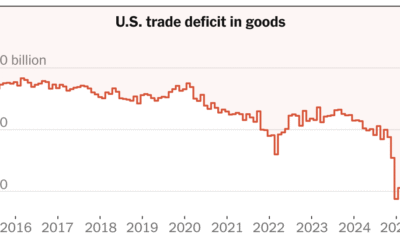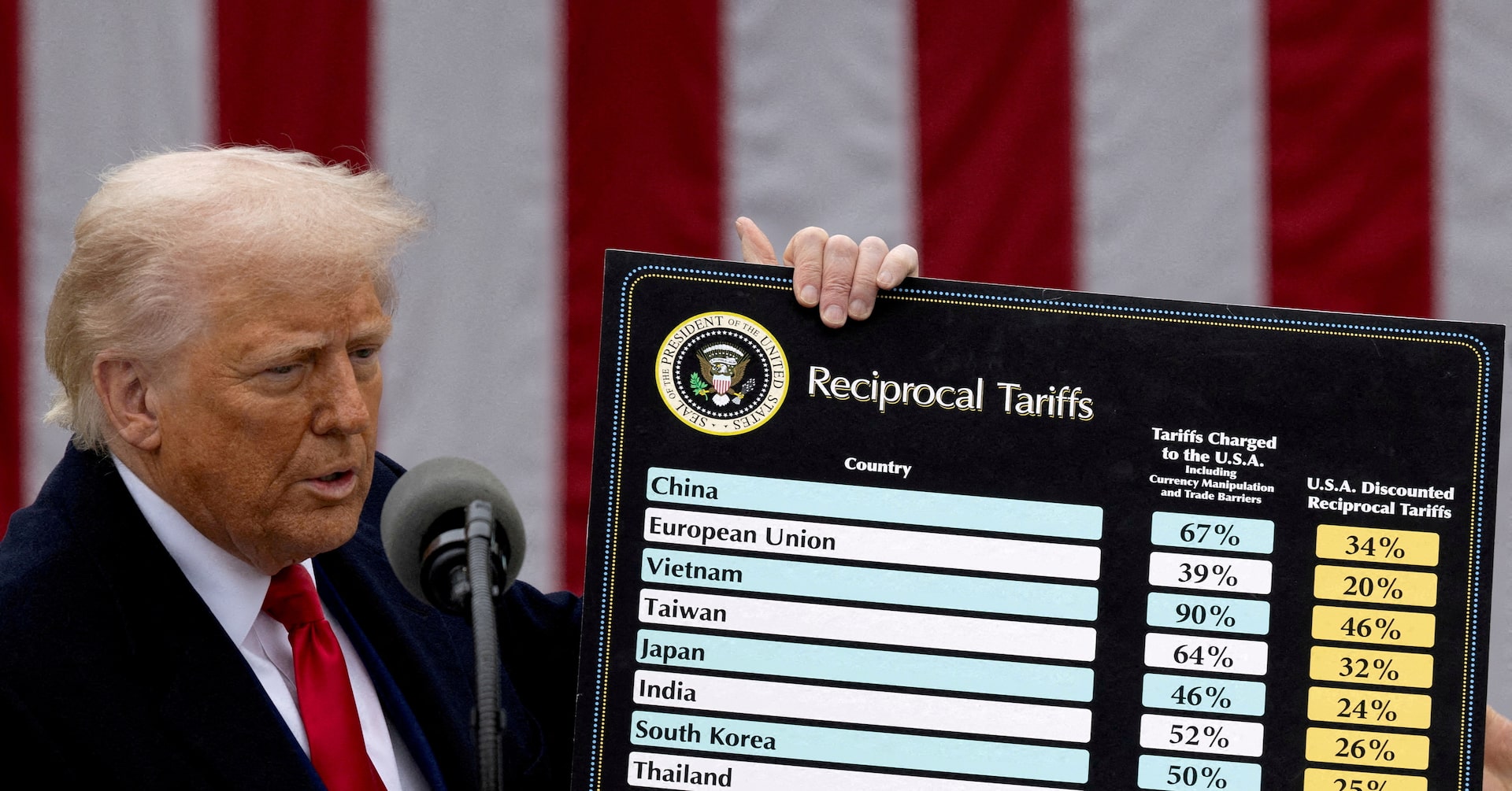Economic Policy
The Latest: US Import Taxes Hit Levels Not Seen in Nearly 100 Years
**Trump Hikes Import Taxes to Near-Century High Levels**
What’s Happening?
President Donald Trump has imposed sweeping tariffs on imports from nearly 100 countries, marking the highest import tax rate since the 1930s. This move comes as the fallout from prolonged tariff threats begins to ripple through the U.S. economy. Americans are now facing an average 18.3% increase on imported goods, a level not seen in almost a century. Industry experts warn of potential price surges and economic disruptions.
Where Is It Happening?
The tariffs affect the entire United States, as imported goods from nearly 100 nations face higher taxes. The ripple effects are expected to touch various industries nationwide.
When Did It Take Place?
The new tariffs were imposed on Thursday, building on the months-long tariff threats that have already begun to impact the U.S. economy.
How Is It Unfolding?
– The newly imposed taxes raise the average import duty to 18.3%, the highest since 1934.
– Economists predict significant price increases for consumers and businesses.
– Sectors like electronics, vehicles, and household goods are likely to be hardest hit.
– The move is part of a broader trade policy aimed at protecting U.S. industries.
– Some analysts fear retaliation from trade partners, potentially escalating tensions.
Quick Breakdown
– New tariffs cover imports from nearly 100 countries.
– Average import tax rate jumps to 18.3%, a near 100-year high.
– Consumer prices expected to surge due to the increased costs.
– U.S. economy already shows signs of strain from tariff-related uncertainty.
– Refer to this effort to bolster domestic industries amid international trade tensions.
Key Takeaways
The Trump administration’s decision to raise import taxes to levels not seen in nearly a century is a bold but contentious move. While the goal is to protect American industries and jobs, the immediate effect will likely be felt by consumers through higher prices. Businesses relying on imported goods will face increased costs, potentially leading to reduced margins or passed-on expenses. The long-term impact remains uncertain, but the potential for trade retaliation and economic disruption cannot be ignored. This measure comes at a time when the U.S. economy is already grappling with the fallout from prolonged trade tensions.
“I understand the goal of protecting our industries, but these tariffs might just end up protecting us into stagnation.”
– Robert Graham, Trade Analyst
Final Thought
**The Trump administration’s dramatic increase in import taxes marks a turning point in trade policy, with consumers and businesses poised to feel the pinch. While the move aims to shield domestic industries, the short-term costs—rising prices and potential trade wars—could overshadow the long-term benefits. As the economy braces for impact, one thing is clear: this is a high-stakes gamble with far-reaching consequences.**
Economic Policy
Brazil launching data center incentives next month to woo big tech, sources say
Economic Policy
Most Trump tariffs are not legal, US appeals court rules
Economic Policy
BOK Likely to Extend Hold on Fears Over Household Debt
-

 Elon Musk2 weeks ago
Elon Musk2 weeks agoElon Musk’s Tesla To Offer Grok, ChatGPT Rival DeepSeek, ByteDance’s Doubao With Its Cars In China
-

 News2 weeks ago
News2 weeks agoDeadpool VR offers chaotic fighting with silly jokes
-

 News2 weeks ago
News2 weeks agoBlack Myth: Zhong Kui
-

 GPUs2 weeks ago
GPUs2 weeks agoNvidia RTX 50 SUPER GPU rumors: everything we know so far
-

 NASA7 days ago
NASA7 days agoNASA Makes Major Discovery Inside Mars
-
Entertainment1 week ago
‘Big Brother 27’ Contestant Rylie Jeffries Breaks Silence on Katherine Woodman Relationship
-

 News7 days ago
News7 days ago5 Docker containers I use to manage my home like a pro
-

 NASA7 days ago
NASA7 days agoNASA Peers Inside Mars And Discovers A Mysteriously Violent Martian Past
















